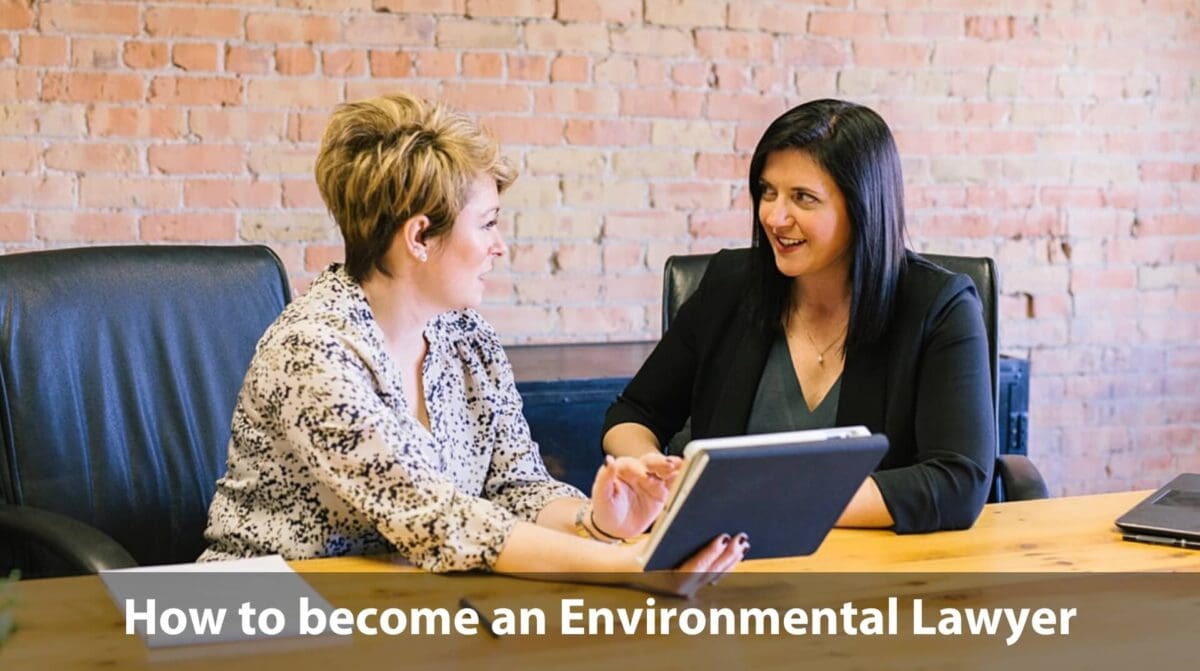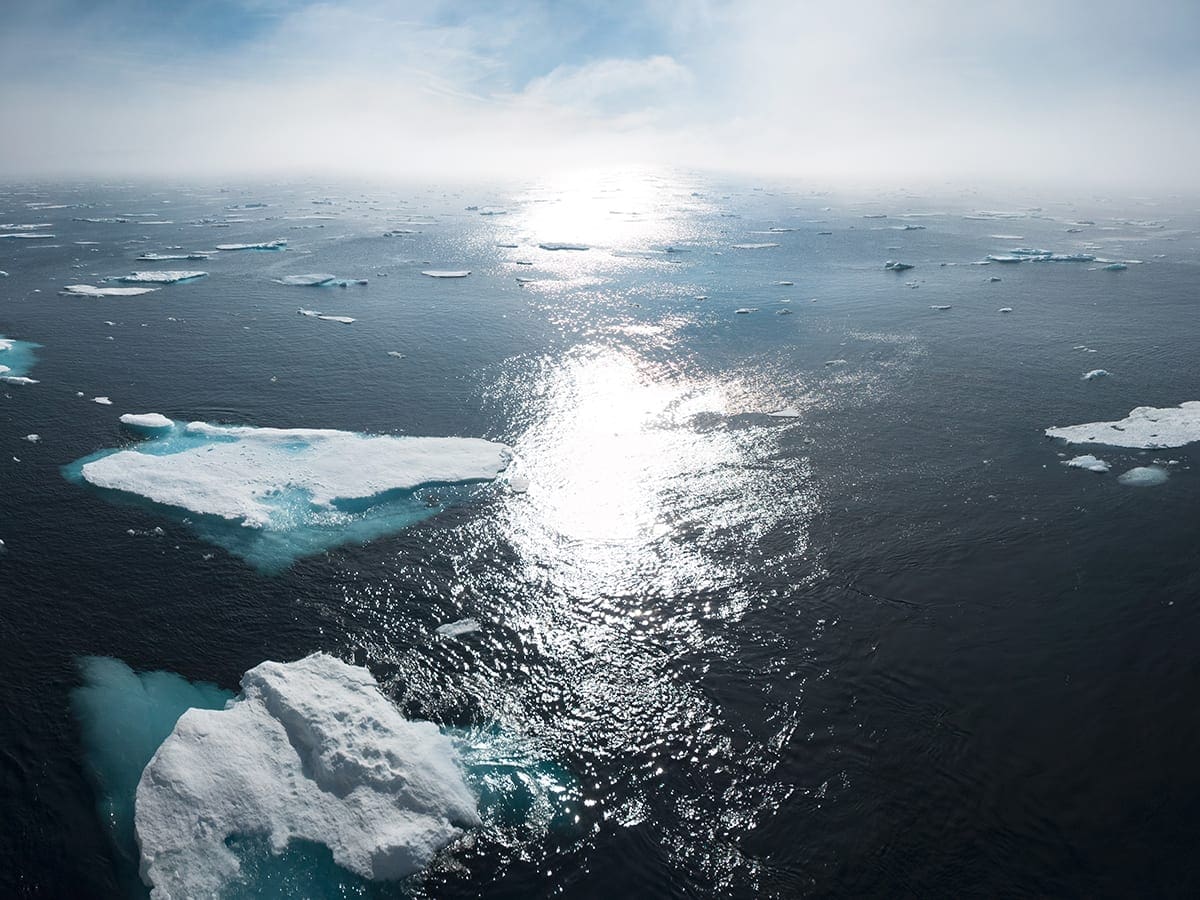
How To Become An Environmental Lawyer
Environmental lawyers are important advocates to individuals, corporations, and government agencies, often acting as a mediator and providing counsel. When thinking about pursuing a career as an environmental lawyer, there are many things to consider. What are the educational requirements? How much do environmental lawyers make? How does a fresh graduate start out?
- What is an Environmental Lawyer?
- Key Tasks & Duties
- Work Environments
- Salaries
- Job Outlook & Growth Rate
- Educational Requirements
- Additional Certifications
- Related Degrees

Environmental Lawyer Fast Facts
| Education Requirements | 4-Year Bachelor’s Degree & 3-Year Juris Doctor (JD) |
| Recommended Degree Program | B.A. in Environmental Policy, Law, and Society |
| Average Salary (2020) | $148,910 (average for all lawyers) |
| Lawyer Jobs in U.S. (2020) | 804,200 |
| Projected Jobs Added by 2030 | 71,500 |
| Projected Growth Rate | 9% (As fast as average) |
| Other Job Titles | Environmental and Natural Resources Associate Attorney |
| Related Careers | Conservation Officer, Park Ranger |
Source: BLS, Occupational Outlook Handbook: Lawyers, May 2020
What is an Environmental Lawyer?
An environmental lawyer may work with a variety of clients from individuals to large corporations to government agencies.
They focus on environmental rights and laws and may work on projects relating to renewable energy, sustainability, and climate change. A successful environmental lawyer will have many skills including research, analysis, negotiation, and both written and verbal communication.
What Do Environmental Lawyers Do?
What does an environmental lawyer do? The day in the life of an environmental lawyer can vary depending on the type of organization the lawyer works in. Environmental lawyers have many important responsibilities that range from research to meeting with clients to court proceedings. An environmental attorney may work with individuals, businesses, and government entities.
Junior Environmental Lawyer duties
An environmental lawyer job description typically includes the following responsibilities.
- Analyze data from findings, cases, trials, and other sources
- Advocate for environmental regulations and protections
- Create legal correspondence and other documentation
- Recommend corrective action and fines for offenders
- Effectively communicate how an event or plan may negatively impact humans or wildlife
- Provide counsel to clients
- Determine if there is enough evidence to represent a business, individual, or government agency
- Assess damages and impact from an event
- Interview clients and other people of interest to compile evidence to develop a case
- Effectively and persuasively present evidence and other findings at trial
Senior Environmental Lawyer duties
In addition to tasks handled by junior or mid-level environmental lawyers, senior lawyers may also be expected to handle the following responsibilities.
-
- Provide legal advice and assistance to investigators during criminal investigations
- Support and mentor junior environmental lawyers
- Provide legal and policy counsel to corporations, agencies, and other entities
- Act as a mediator between landowners and businesses or government agencies
- Draft environmental policies and business practices
- Validate written legal documentation
- Organize and participate in educational campaigns and lobbying efforts
- Create clear written communication to stakeholders and interested public parties
- Consult and advise agencies, researchers, scientists, and individuals
- Encourage public engagement by organizing environmental advocacy programs and forums
-
State Employment Average Salary Annual 10th percentile wage Annual 90th percentile wage District of Columbia31050 197100 106090 – California 84160 179470 79860 – New York 76660 174060 71690 – Massachusetts 18880 169120 65440 – Connecticut 7710 158190 73790 – Illinois 30440 153720 64390 – Virginia 16650 151970 68990 – New Jersey 21030 151550 69390 – Colorado 14680 148330 64940 – Texas 46340 142730 65360 – Utah 5500 141460 59360 – Arizona 10000 140520 59770 – Georgia 19550 140300 51400 – Maryland 12520 139610 64720 – Florida 47010 139160 52020 – Pennsylvania 25070 139120 57160 – Rhode Island 1810 134370 70760 – North Carolina 14330 132190 54470 – Washington 13030 131530 62600 – Minnesota 11520 131460 61390 – New Hampshire 1970 129590 60310 – Nevada 4560 129480 77550 194790 Ohio 17570 128170 52860 – Oregon 6550 128160 54650 – Virgin Islands 190 126780 81310 197410 Wisconsin 8280 124410 56750 – Iowa 3180 122400 52440 – Oklahoma 6890 122040 55410 – Tennessee 7810 121790 61060 – Alabama 6240 121130 48530 – Michigan 13790 119150 59070 187770 Nebraska 2640 118070 58520 187710 Kansas 3580 117910 49280 – Indiana 8090 117820 52840 – Alaska 1020 116440 71990 169200 Hawaii 1910 114520 65620 170700 South Carolina 6650 114320 31100 – North Dakota 1180 113480 58550 189830 Louisiana 8180 112190 53210 197980 South Dakota 890 111930 60580 186070 Missouri 10650 111020 48890 197590 West Virginia 2540 109290 54520 173310 Idaho 2290 108470 56890 191270 New Mexico 3660 107700 59630 182710 Kentucky 5770 105130 47900 193590 Wyoming 880 102810 56460 164500 Vermont 1110 100950 55900 168710 Guam 150 100740 57950 147490 Maine 1930 98980 54420 170810 Arkansas 2940 94800 35100 165350 Mississippi 2970 93380 20720 168500 Montana 1870 93220 47020 148690 Puerto Rico 2920 69350 35710 124690 Delaware 2630 – – – Environmental Lawyer Education Requirements
How long does it take to become an environmental lawyer? It typically takes about 7 years to become an environmental lawyer. Educational environmental lawyer requirements include a bachelor’s degree and a law degree, typically a Juris Doctor (JD).
Upon graduating, the bar exam must be completed successfully. Those seeking a more senior or specialized role after graduating from law school may consider a post-graduate program.
High School Recommendations
High school students interested in pursuing a career in environmental law may consider taking an elective course in ecology or environmental science. Some programs may offer or even require an externship where students can gain hands-on experience in the field.
Undergraduate Environmental Law Programs
A bachelor’s degree is required in order to be admitted into law school. There isn’t a specific program of study that is required, however, students may consider seeking a degree in environmental policy, environmental science, business management, or government.
Programs pertaining to these subjects may help students as they apply to the best environmental law schools. Schools for environmental careers can be a great place to develop an understanding of topics like environmental justice, energy and the environment, and environmental and natural resources.
Postgraduate Environmental Law Programs
After completing a 4-year bachelor’s degree program, aspiring environmental lawyers must go to law school. It typically takes three years to complete law school and receive a Juris Doctor (JD). Often, entry to the top law schools will also require passing a law school admission test.
Post-graduate students may consider continuing their education to receive a Masters of Law, Masters of Environmental Law, or a Ph.D. Masters or doctorate programs to consider include oil and gas law, land use, and air quality control. Environmental lawyers with a master’s or doctor’s degree often receive higher pay and may be eligible for senior-level positions.
Additional Certifications
In addition to a degree, the completion of the LSAT and bar exam are required environmental lawyer qualifications. The LSAT is an exam that takes half a day to complete. It tests critical thinking and reasoning skills. A passing score is required to be accepted into law school.
After completing law school, lawyers must become licensed. To become licensed, the state bar exam must be passed. The format of the bar exam varies by state. There are many prep courses and resources that students can use to prepare.
Work Experience for Environmental Lawyers
Many companies hire environmental lawyers with at least 5 years of work experience. Experience working in a government agency is preferred by many organizations. Environmental lawyers starting out can gain experience from internships or by joining a private practice. Others find employment at non-profits or government agencies.

Ready To Learn More About Unity Environmental University?
Related Degrees
A few bachelor’s degrees that an aspiring environmental lawyer may consider include:
- B.S. in Environmental Science and Climate Change – Learning through the lens of climate change adaptation and mitigation, this degree program allows students to step into enriching careers that make a difference.
- B.S. in Sustainable Business Management – This course covers key environmental and social issues, risks, and opportunities to help companies drive innovation, improve efficiency, and create new markets.
- B.A. in Environmental Policy, Law, and Society – In addition to an internship in Washington DC, this degree program covers advocacy, ethics, and the environment; environmental resource law; state and local government; natural resource law and policy; and more.
Degree Prorgrams







